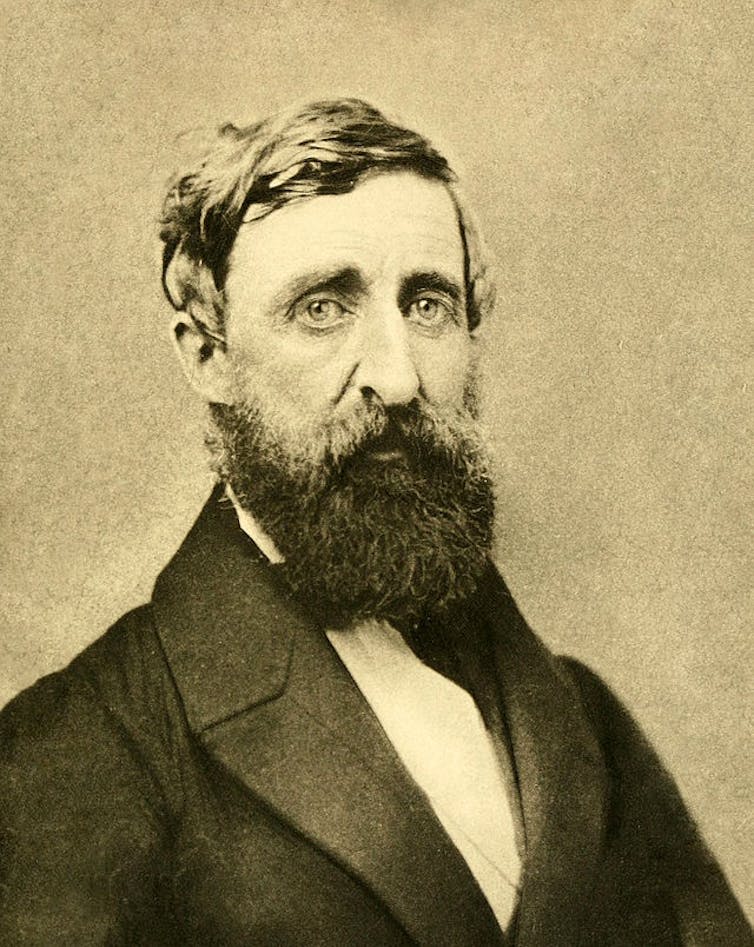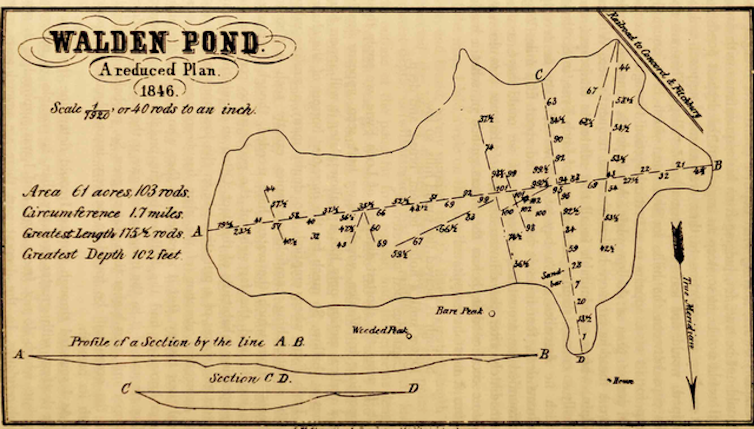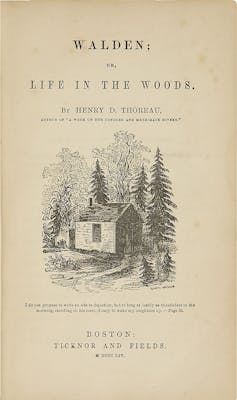Australians have just decided one more “climate election”. What this intended, basically, was that we experienced to pick out between two difficult futures. The outcome has yielded a new mandate for significant get the job done on weather policy.
“Liberal democracies” are facing some of the deepest worries they have nonetheless encountered in their reasonably shorter histories. Historic carbon emissions from the richest countries – primarily the country of my beginning, the United States – heat our Earth, making everyday living tough for us and for all points. Several species have absent extinct. A lot of peoples have shed their homelands. Australia has endured droughts and fires and floods.
In democracies like ours, in elections like the just one we have just witnessed, politicians generally frame environmental questions as a competitors concerning two values: ecology and financial system.
On the a person hand, they inform us, they know that ecological flourishing is critical to culture. They do their very best to lead to sustainability. They nurture green cities and encourage environmental reform. On the other hand, they say, we are also reliant on a flourishing economic system. Without having the economic procedure in which we all function and exchange merchandise, we would not try to eat or uncover shelter.
They are not improper. Equally a flourishing ecology and a balanced economic system are needed for liveable human society.
But in framing ecology and economic climate as competing values, and all environmental queries as demanding trade-offs concerning them, up to date politicians depart from more mature, a lot more holistic approaches of contemplating about the nicely-getting of our communities. Some of these ways of thinking do not place financial state and ecology as competitive.
In Australia, of training course, some of people extra holistic methods of pondering involve very important Indigenous knowledges about dwelling related to Region. In addition, there are traditions of dissent from the competitive paradigm amongst some environmental thinkers within European and American society.
In my recent guide Thoreau’s Faith: Walden Woods, Social Justice, and the Politics of Asceticism (2021), about the 19th-century American author of Walden or, Everyday living in the Woods (1854), I argued that Henry David Thoreau’s commitment to ecology was pushed by a hope for a just economic system. In this, he presents a number of key points of resistance to the up to date vision of levels of competition in between ecology and economy.
Ecology as a fuller description of social daily life
Thoreau was well known amongst his contemporaries for his love of animals. Just one early biographer was Edward Waldo Emerson, son of the essayist Ralph Waldo Emerson, who experienced regarded Thoreau when he was a boy or girl. Emerson noticed that Thoreau “felt actual regard for the temperament and character of animals”.
This was legitimate to the extent that he built pals with them. Frederick L.H. Willis visited Thoreau in Walden Woods in July 1847:
Thoreau said: “keep extremely continue to and I will exhibit you my family”. Stepping immediately exterior the cabin door, he gave a small curious whistle instantly a woodchuck came functioning to him […] With nonetheless an additional observe many birds, which includes two crows, flew toward him, a single of the crows nestling on his shoulder […] He fed them all from his hand […] and then dismissed them by a diverse whistling, often peculiar and small and brief, every small wild issue departing quickly at listening to its distinctive signal.
Generalising from Thoreau’s adore of animals, Edward Emerson also wrote:
For all lifetime he had reverence, and just the place the restrictions of aware existence commenced and finished he was as well sensible, and much too hopeful, to say.
“Ecology” is a word that was invented after Thoreau, a phrase that points to the relationships between living organisms and the sites they are living. But the thought it describes – the thought of an interactive total, the cloth of lifetime alone – was intuitive to him.
Some strands of Western science have divorced human beings from other living items in a dualistic, anthropocentric worldview. But in Thoreau’s eyesight, human and additional-than-human sociality were integral to a total description of ecology.

General public area
Walden Woods is generally assumed of as a lonely wilderness. Numerous interpreters of Thoreau’s perform have assumed that he went there in an individualist gesture of resistance to social lifestyle.
My analysis indicates Walden Woods was an choice society. The 20th-century reception of Walden, indebted as it was to cultures of white supremacy, neglected the area’s wider communities and other types of sociality.
A focus on white histories through the 20th century obscured a important fact about Walden Woods: it had been a web site of human society right before Thoreau arrived. In the generation right before Thoreau, as he recounts in Walden, a group of formerly enslaved men and women created their lives independently on the shores of Walden Pond, establishing a community that endured for about 4 a long time.
Elise Lemire has published the most in-depth account, Black Walden (2009). She indicates that those people individuals chose the internet site for reasons that aligned with Thoreau’s: it was at some take out from Concord society, which shielded them from harassment to a certain extent, and the forest gave them fantastic accessibility to the pure resources they essential to dwell independently.
Just one of their selection, Brister Freeman, cultivated a chestnut orchard, setting up to improve old in Walden Woods and reside on its deliver.
This kind of functions of independence took their importance from the unjust economies that were being their contexts. Customers of the Walden community constructed admirable lives, boasting their independence in a culture that had stolen their labour for also prolonged.
Read additional:
Why Thoreau, born 200 decades ago, has never ever been additional important
Financial system as a ethical query
As Donald Worster has proven in Nature’s Economic system: A Heritage of Ecological Strategies (1994), the concepts “economy” and “ecology” have a deeply entangled heritage. Right before ecology had a title (the first visual appearance of the time period was in 1866), it was at times called “the economy of nature”.
Thoreau’s retreat to the woods was his way of joining an choice financial state, nature’s financial system, in reaction to the dysfunctional economic forces – together with slavery – that he observed urgent down on him, his townsmen, and his nation more broadly.

Wikimedia commons
He states as considerably in Walden. Though Thoreau is properly acknowledged as a dedicated naturalist, his most well known book begins with a incredibly extensive chapter titled “Economy”. You would not know it from preferred understandings of Walden, which consider Thoreau as a crank averting his duties, but the entire e-book was motivated by distress above the many strategies that modern economies were undesirable for persons.
It is not a shock that viewers miss out on this – the opening chapter is very long and occasionally monotonous on reason. It contains lists of fees that Stanley Cavell study as jokes, but are effortless to consider too severely. One particular teacher I know tells learners that they can just skip “Economy” for the second introduction, the a lot less cranky and much more succinct “Where I Lived, and What I Lived For”.
Why did Thoreau care about economy?
8 several years right before shifting to Walden Woods, Thoreau graduated from Harvard College in the course of a devastating economic melancholy. The worry of 1837 was the worst monetary disaster the United States experienced still encountered in its shorter lifestyle.
The settler colonial growth of the young country into the west had produced a authentic estate bubble that burst in Might, and house values collapsed. Factories closed individuals have been cold and hungry there were being riots in the streets.
Due to the fact Thoreau ranked 19th out of 41 students graduating that 12 months, he was a speaker at graduation in June. His assigned subject matter, during this financial crash, was “The Industrial Spirit of Contemporary Moments, considered in its Affect on the Ethical Character of a Nation”. As Laura Dassow Walls writes in her gorgeous biography, Thoreau argued that “commerce destroys moral freedom”. He advised that the business spirit sprang from “an unmanly appreciate of wealth”.
In the eight decades pursuing his graduation, Thoreau struggled to make a dwelling. It was this economic context, and his individual practical experience of get the job done and credit card debt, that drove him to Walden Pond. He wished to be an author. He had a longstanding unfulfilled ambition to create a reserve. He crafted the most economical house he could knock alongside one another, on land that was not his, in buy to abide by his desire, regardless of the punishing financial ailments.
Examine much more:
Guidebook to the classics: Walt Whitman’s Leaves of Grass and the intricate existence of the ‘poet of America’
Overall economy as a type of ecological flourishing
Thoreau considered that his example could established other folks cost-free. It might stimulate them to resist an unjust economic climate and comply with the promptings of their own genius. He wrote Walden to show readers that a tenderer economic system may be much better for us.

The promptings of this 19th-century Yankee present an option to ponder whether and how our individual economic system could be additional ecological. There are artistic economists and plan makers rethinking approaches to deliver ecology and economic climate back again into sync. This kind of an energy will be essential for any habitable long term on our finite Earth.
Thoreau enacted this financial reform in a modest way in the course of the two many years he invested living in Walden Woods. The initial yr, he experienced a fireplace in a fireside, but in the 2nd year he bought a stove to conserve wood. He did this, he claimed, for economic factors and to protect the forest he cherished. “The upcoming wintertime I utilised a compact cooking-stove for financial system, considering the fact that I did not possess the forest.”
In this, Thoreau appealed to a radically unique eyesight of overall economy from the politicians who pit financial state in opposition to ecology. Their “economy” generally describes a method of monetary achieve for persons who are presently wealthy. Thoreau’s “economy” was about preserving anything that he did not individual, one thing that is important to all of us, on behalf of all of us. This is what the climate coverage of a new period of time in Australian politics should really purpose at: a holistic, equitable vision of financial system and ecology.
For Thoreau, as for us, “economy” was a phrase with several meanings. He sought to reveal that the “commercial spirit” he experienced criticised for its moral failings at his graduation was not the only attainable variety of economy. Accurate economic system, according to Thoreau, would direct to ecological and social flourishing amid humans, and for all beings.






More Stories
How to Achieve Beauty Through Healthy Eating
Stick To A Healthy Lifestyle – How To Eat A Balanced Diet For Weight Loss
A Guide To A Healthy Lifestyle For Teenagers